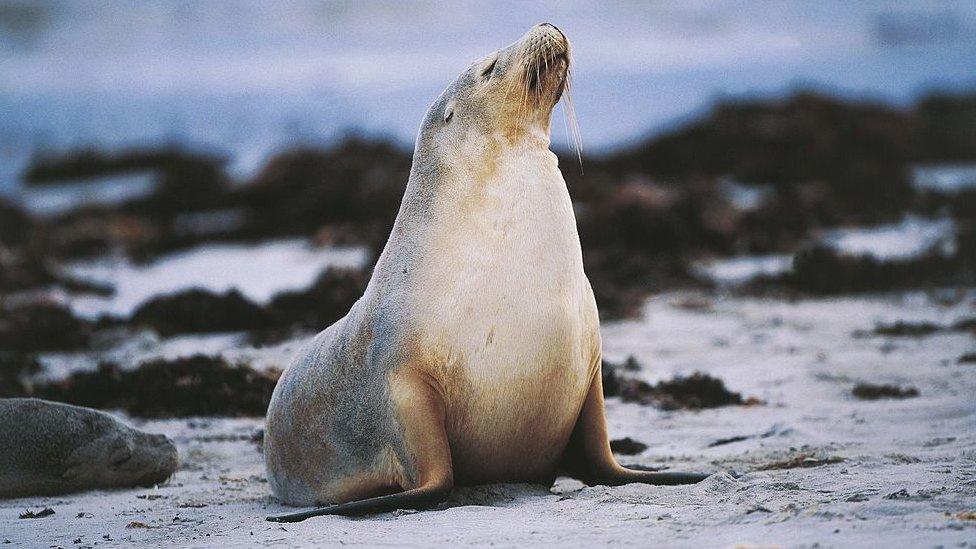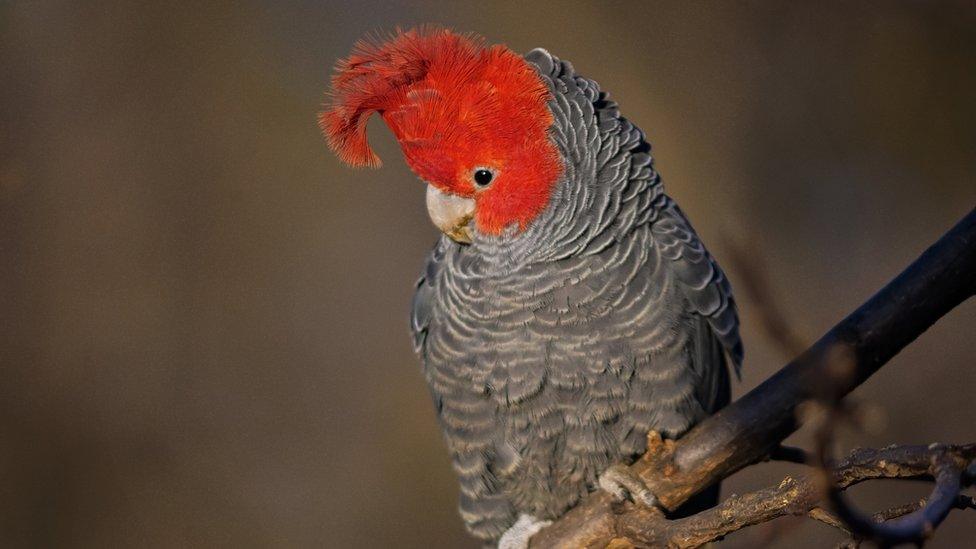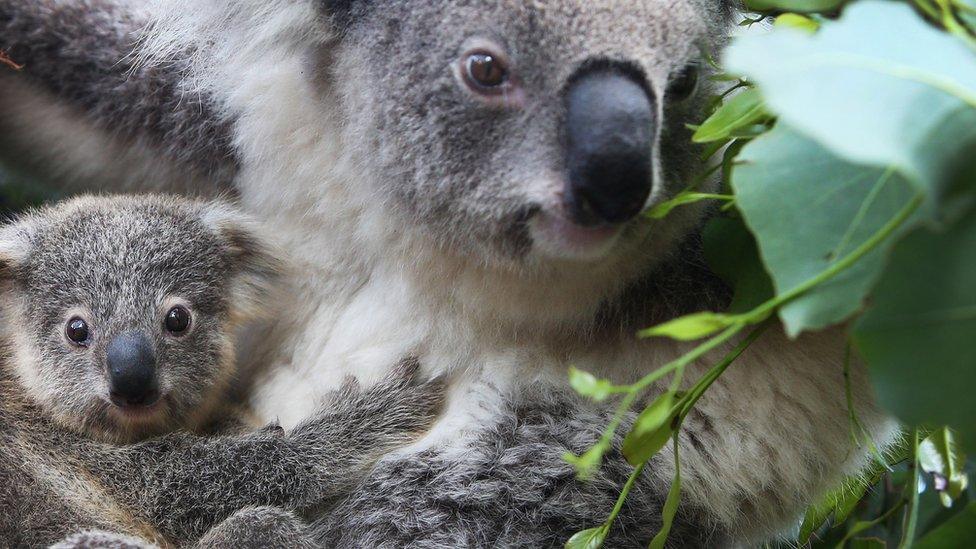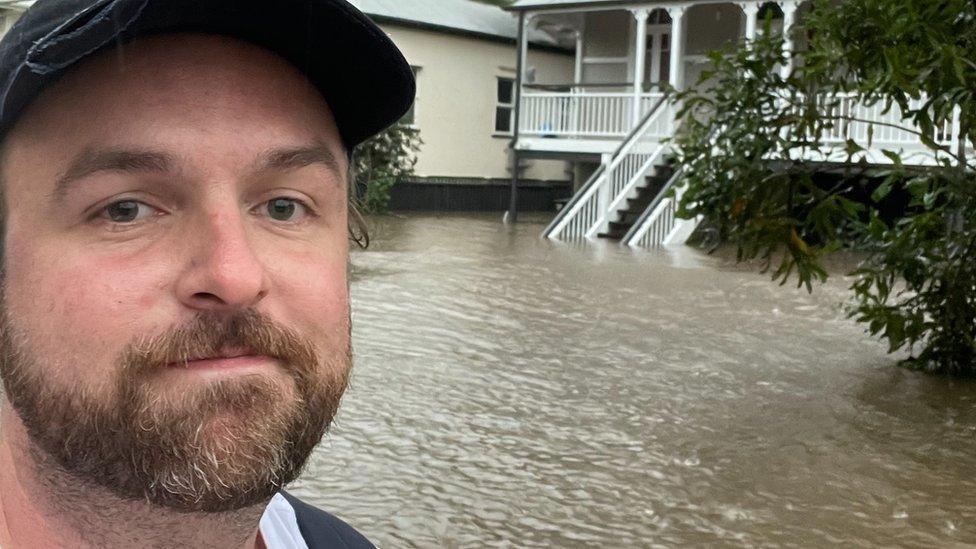Australia vows new plan to stop mammal extinction crisis
- Published

The Australian sea lion is one of 110 "priority" species identified
Australia plans to halt the loss of any more species and end its status as "the mammal extinction capital of the world", its government says.
More than 100 threatened animals and plants - including iconic species like the koala - will be prioritised under new conservation strategies.
The plan includes a promise to protect a third of the continent's land mass.
Earlier this year a report found Australia's environment is in shocking decline.
Many native animals and plants face threats including habitat loss, invasive pests and weeds, climate change, and more frequent and destructive natural disasters.
Environment Minister Tanya Plibersek said the need for action has never been greater.
"Our current approach has not been working," Ms Plibersek said in a statement. "We are determined to give wildlife a better chance."
The goal to list 30% of Australia's land as protected under national environment laws will help vulnerable species and habitats, she said.
The 10-year strategy also aims to improve resilience to climate change, build "insurance" populations of some key species in predator-free zones, and better monitor existing populations.
It calls for more efforts to reduce the impact of feral cats, foxes and a prolific weed known as gamba grass, and to better harness Aboriginal expertise on managing the environment.
Twenty areas with high densities of threatened species will be specifically targeted. They include Kangaroo Island in South Australia and the Blue Mountains in New South Wales, which were devastated by bushfires in 2019-20.
The 110 species to be prioritised include the Australian sea lion and the rarest marsupial in the world, Gilbert's Potoroo - of which only about 100 remain.
Ms Plibersek says the strategy is the government's answer to the State of the Environment report, which found Australia has lost more species to extinction than any other continent.
The survey of the country's ecological systems concluded that more than half were in a poor state.
Threats are not being adequately managed, meaning they are on track to cause more problems, it said.

You may also be interested in:
Australian women seek climate action with photo petition
Related topics
- Published19 July 2022

- Published13 April 2022

- Published19 May 2022
